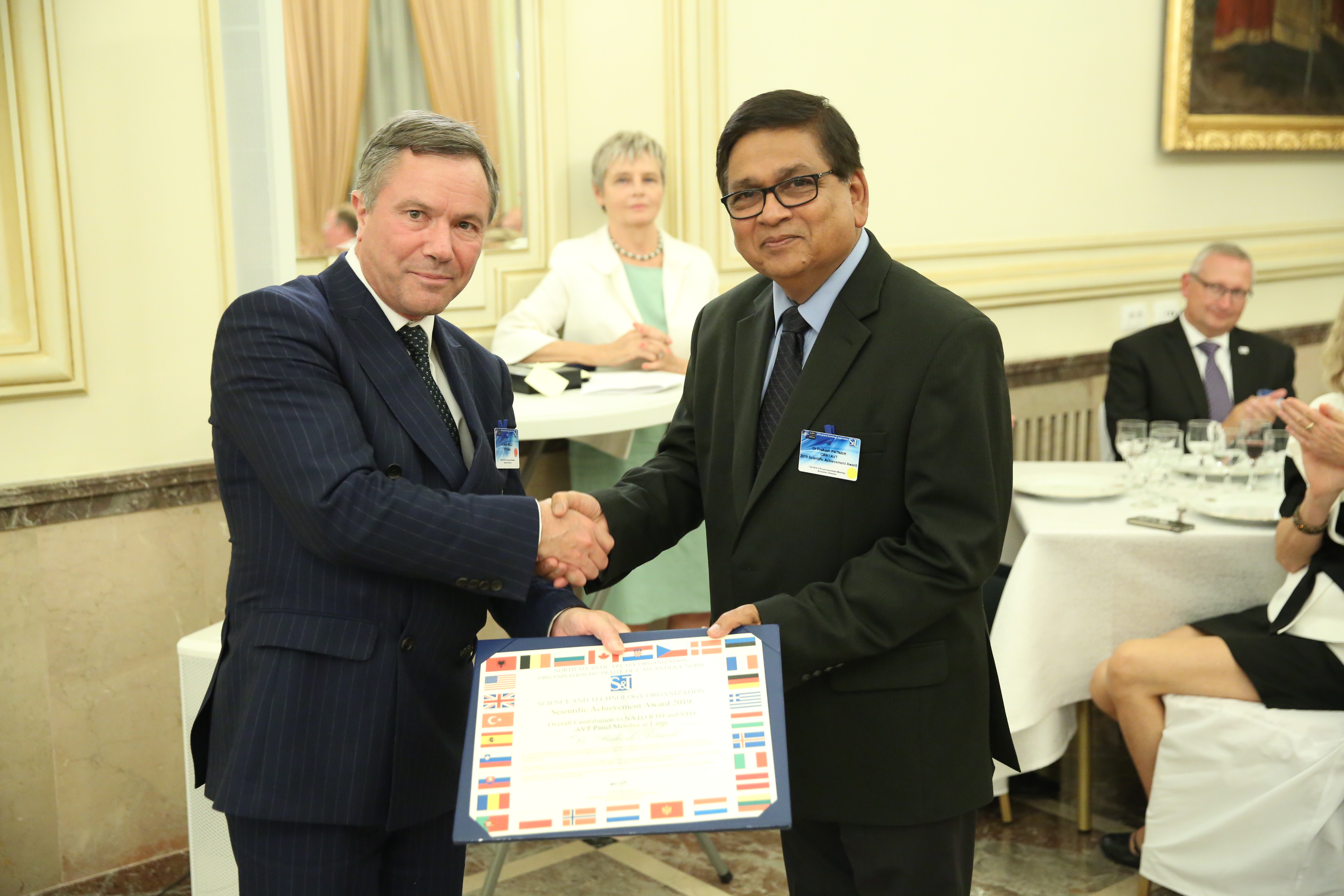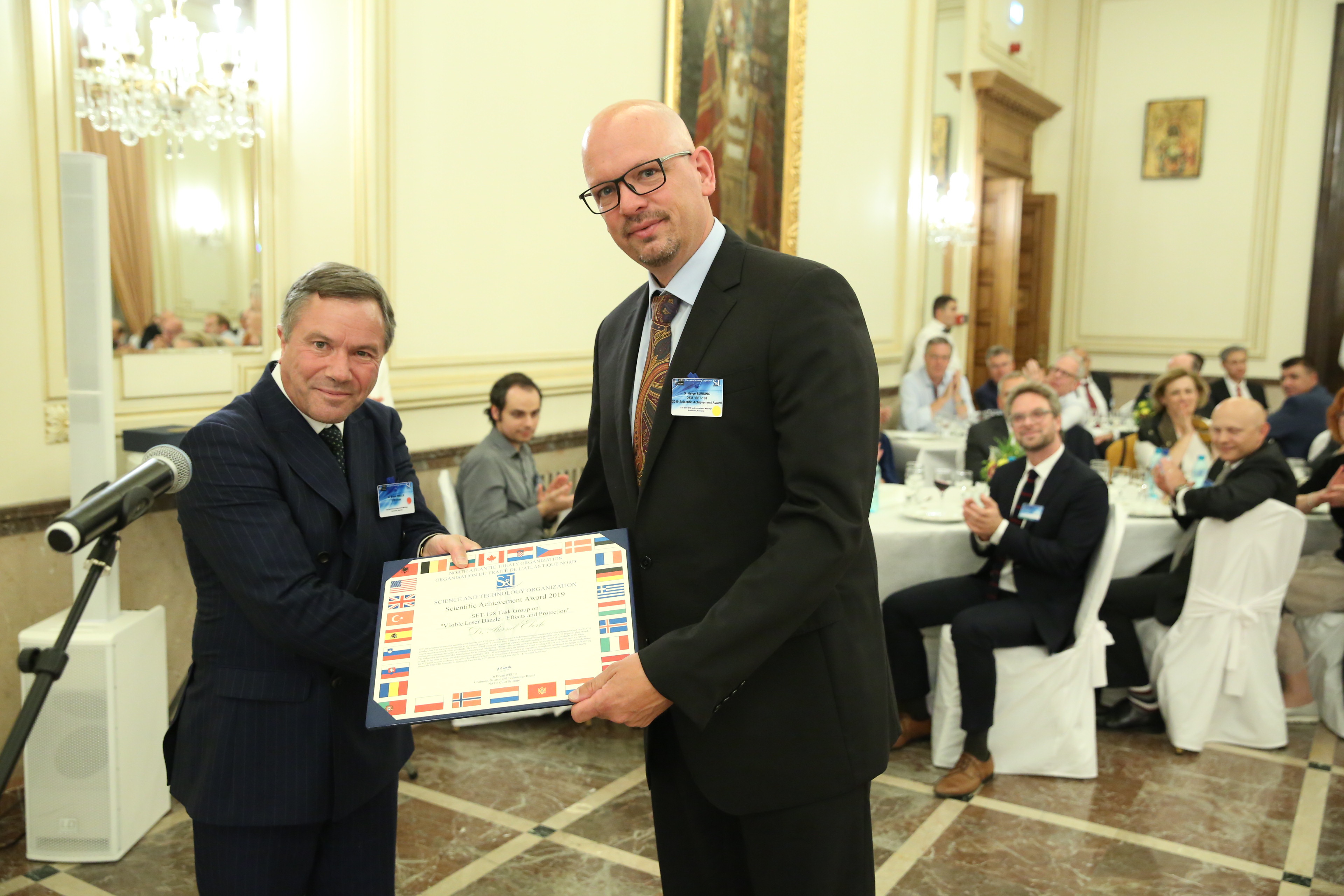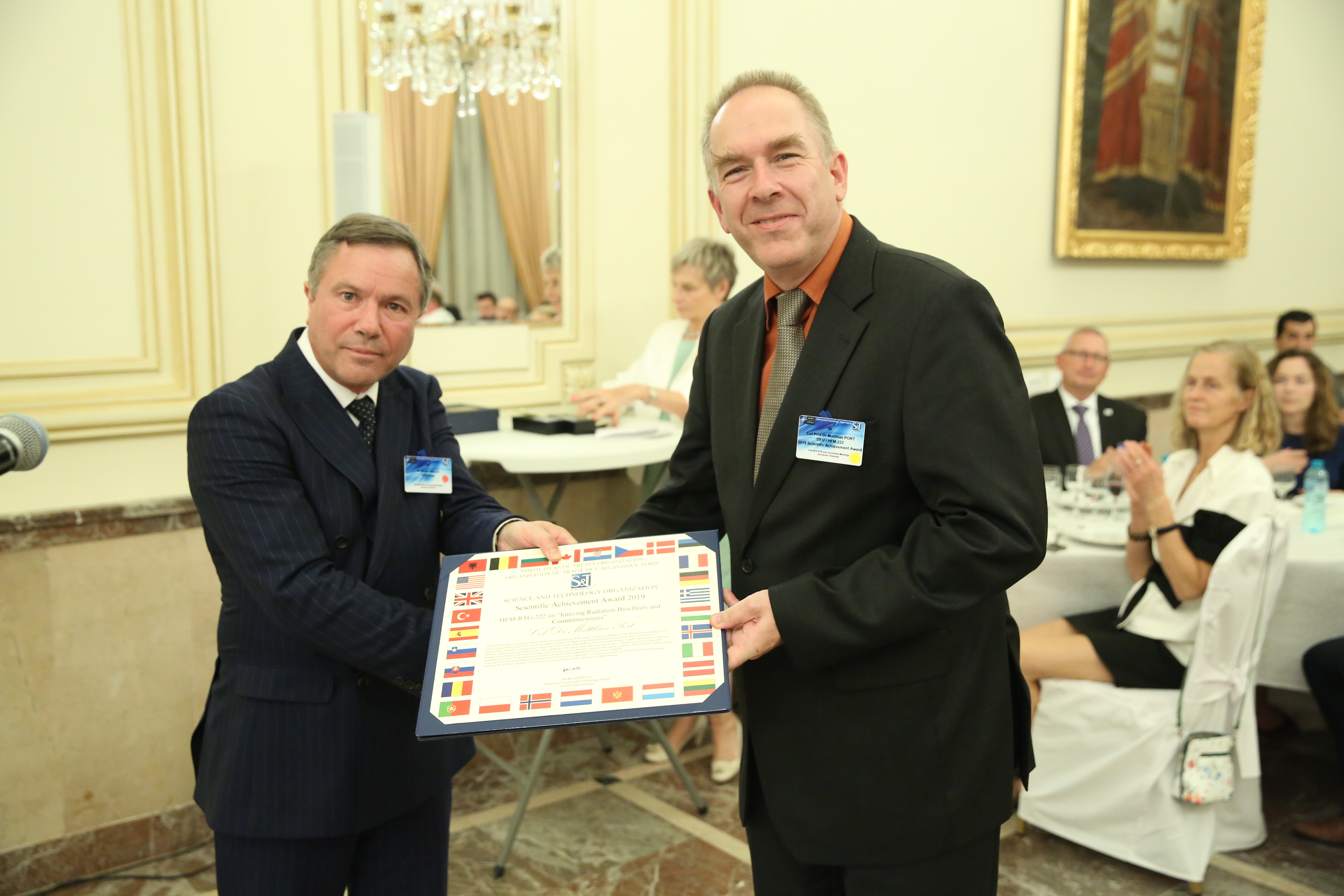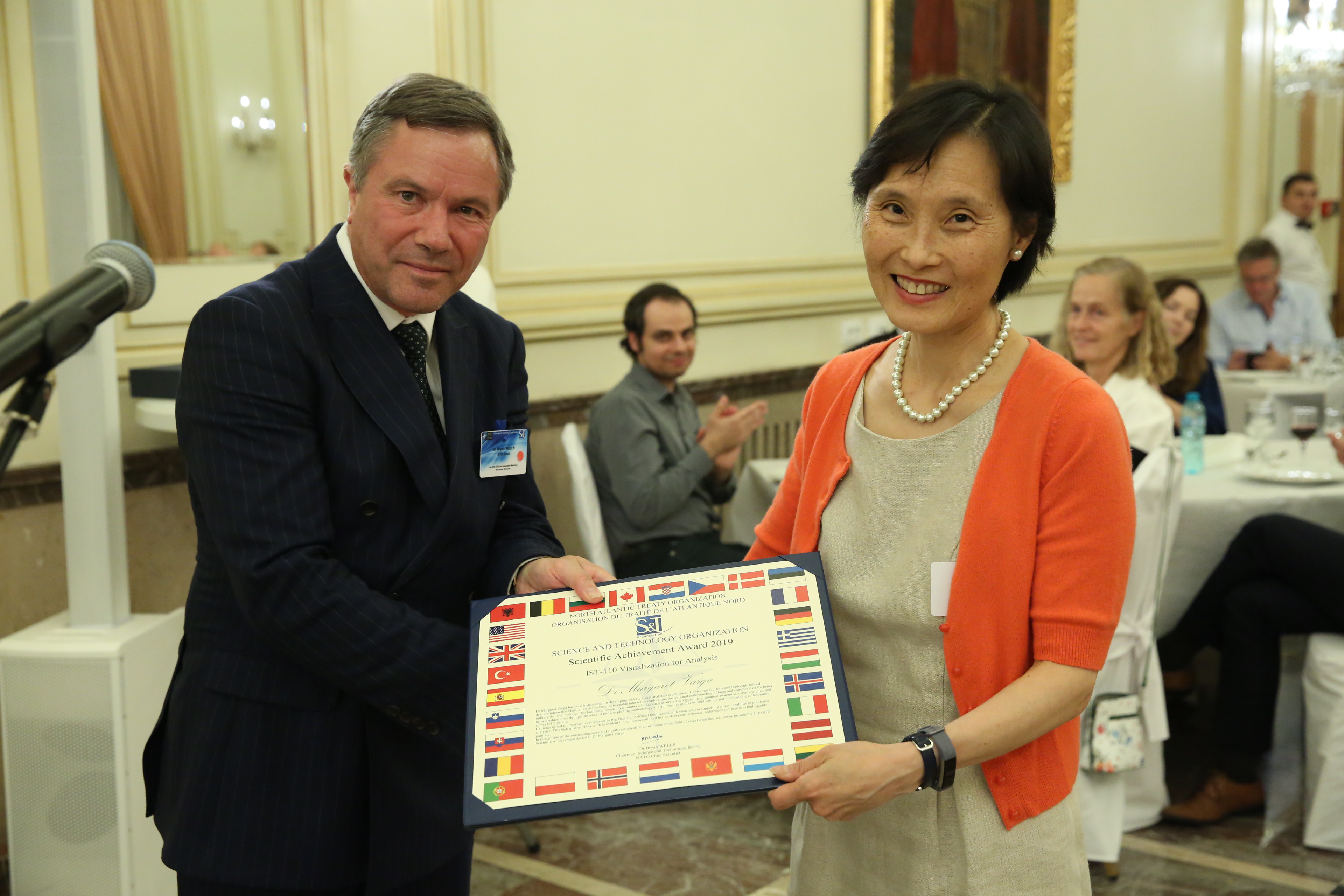AVT: Dr. Prakash Patnaik
 Dr. Bryan Wells, NATO Chief Scientist, and Dr. Prakash Patnaik Dr. Bryan Wells, NATO Chief Scientist, and Dr. Prakash Patnaik |
In recognition of his outstanding work and significant scientific contribution, Dr. Prakash Patnaik received the 2019 Science and Technology Scientific Achievement Award.
Dr. Prakash Patnaik has actively conducted excellent collaborative research on behalf of Canada over the last three decades. As Panel Member-at-Large in NATO’s Science and Technology Organizations (STO) Applied Vehicle Technology (AVT) Panel, he took on many leadership roles.
Since joining STO AVT, he has acted as panel mentor, chair, technical team member and program committee member in numerous of NATO activities. In this way he significantly contributed to NATO’s S&T capabilities in the field of material science.
SET- 198: Dr BÜRSING
 Dr. Bryan Wells, NATO Chief Scientist, and Dr. Bürsing Dr. Bryan Wells, NATO Chief Scientist, and Dr. Bürsing |
Dr BÜRSING received the award on behalf of SET-198 Team. The team brought together an exceptional group of 19 scientists from 9 nations to address a continuing problem to NATO: Impact of glare on task related situations caused by laser eye dazzle. Their exceptional teamwork advanced an unparalleled understanding of the impact of laser dazzle on the visual performance of humans by means of computer modeling and field testing. The outcomes enable to simulate laser eye dazzle and to visualize dazzling patterns. The technical achievements of this amazing team led to landmark advances in predicting the distance at which dazzling will start to influence the accomplishment of tasks in the sense of reduction of the operational capability.
HFM-222: Professor Port
 Dr. Bryan Wells, NATO Chief Scientist, and Dr. Port Dr. Bryan Wells, NATO Chief Scientist, and Dr. Port |
Professor Dr. Port received the Scientific Achievement Award on behalf of the HFM-222 research task group on “Ionizing Radiation Bioeffects and Countermeasures” for their outstanding research work. The overall objective of the group was to develop and propose medical countermeasures optimized with respect to this threat. The group optimized diagnostic tools using multi-parametric biological dosimetry (cytogenetics, haematology, proteomics and genomics). The group also progressed from the traditional concept of dose biomarkers (biological estimation of total irradiation dose received) to that of biomarkers of effects and damage with an eye towards both the victims’ diagnosis and prognosis.
IST: Margaret Varga
 Dr. Bryan Wells, NATO Chief Scientist, and Dr. Margaret Varga Dr. Bryan Wells, NATO Chief Scientist, and Dr. Margaret Varga |
Dr. Margaret Varga, from the University of Oxford, GBR, was presented with a 2019 STO Scientific Achievement Award by the NATO Chief Scientist, Dr. Bryan Wells, for having been instrumental in developing a visual analytics capability in NATO and providing the leadership to draw together complementary research activities in nations and exploiting opportunities for its application to demonstrate value. The technical work developed interactive visual analytics techniques to enable interactive exploration, analysis and understanding of large and complex data. This underpins better situational awareness and better decision making for NATO and allies within the Big Data context.
With applications to aircraft safety in both the military and civil domains, the research provided a new and better capability to identify weaknesses and strengths in aircraft design, land management, bird management, flight schedules, reporting, etc. thereby offering improvements to traditional methods. A quote from the Netherlands Military Aviation Authority, “The work [Margaret’s] is not only valued by the NATO Flight Safety Work Group, but will benefit civil and military colleagues around the world,” is a testament to the impact of this work. Published by STO |
